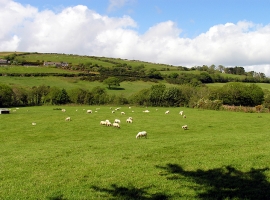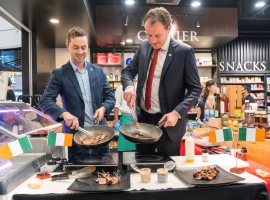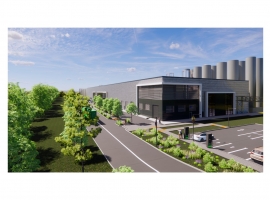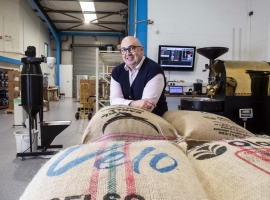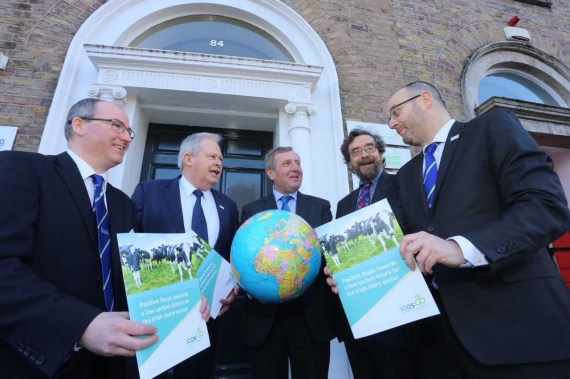
A major new report on the dairy farming sector has found that every litre of milk produced in Ireland is currently the most carbon efficient litre of milk in Europe - a distinct competitive advantage for Irish dairy farmers.
The report was launched this afternoon by Agriculture Food and Marine Minister, Michael Creed, T.D., together with Professor John Fitzgerald, Chair of the Climate Change Advisory Committee and Martin Keane, President of ICOS, which represents all dairy processing co-operatives in Ireland.
The report shows that Ireland’s dairy products and ingredients are sold in over 155 countries worldwide, valued at €4 billion. Eighty one percent of all agricultural land is used for grass production (hay, silage or pasture).
The report also suggests that grass based dairy and beef production is the backbone of Irish farming and underpins the cost competitiveness and sustainable credentials of Irish agriculture and food production. Livestock in Ireland is reared on permanent pasture, with grass or silage making up to 83.6% of a typical dairy cow diet.
It is estimated that there are 6.6 million cattle in Ireland including 1.35 million dairy cows which Teagasc projects will increase to 1.6 million head by 2025.
Furthermore, the European Commission’s Joint Research Centre Report in 2010 recognised Ireland’s dairy sector as the most carbon efficient in Europe. Irish milk emissions were 1kg per kg of product, compared to the EU average of 1.4 kg per kg of product. Ireland’s emissions per kg of beef were 18.4 kg per kg of product, well below the EU average of 22.2 kg per kg of product.
At farm level, the report shows there have been great advances in terms of productivity, efficiency and milk quality standards over recent years. In addition, greenhouse gas emissions from agriculture in Ireland today are 3.5% below 1990 levels.
The ICOS report outlines the role of co-operatives in delivering future sustainable growth and reviews the development of public policy related to climate change and agriculture. The sustainability credentials of the Irish dairy sector are outlined in detail and the importance of fostering knowledge sharing is emphasized.
Speaking today, ICOS President, Martin Keane said, "There is no room for complacency. There is simply too much at stake. Agricultural systems throughout the world will have to provide extra food to feed a growing population – expected to exceed 11 billion people by the end of this century. We must produce more food, while conserving available land, water and energy resources. That is why the recommendation by the Citizen’s Assembly in November 2017 to impose a carbon tax directly on Irish agriculture is deeply flawed."
He added, "This proposal, if implemented, would damage the competitiveness of Irish agri-food exports, while benefiting little to the environment. In reality, it would be counterproductive, resulting in the possibility of carbon leakage."
Source: www.businessworld.ie


